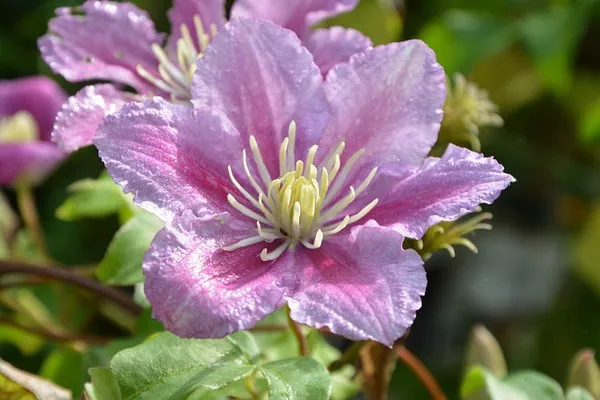The future of flower tourism is set to bloom like never before, driven by a new generation of immersive experiences, cutting-edge technologies including 5G, ultra-high definition, augmented reality, virtual reality, and artificial intelligence. This technological revolution is poised to transform the flower tourism industry, offering personalized, convenient, and intelligent chain services that leverage big data, panoramic VR, and AI.
Artificial intelligence is becoming a game-changer in the world of flower tourism and horticulture. It is reshaping traditional agricultural planting methods, leading to the optimization and modernization of the flower industry. By harnessing the power of AI, the flower industry can now offer intelligent, data-driven solutions that enhance the entire production process.
The Rise of Flower E-commerce in China
China’s flower e-commerce market has witnessed explosive growth in recent years, with the market transaction scale surging from 16.88 billion yuan in 2016 to a staggering 72.06 billion yuan in 2020. This remarkable growth translates to a compound annual growth rate of 43.74% over five years. The proportion of flower e-commerce retail sales in the overall online retail market has also been on the rise, increasing from 0.2% in 2010 to approximately 0.6% in 2020. This trend is expected to continue in the coming years, further bolstering the flower e-commerce sector.
Diverse Regional Flower Production Layout
China’s flower industry has evolved into a regional specialized production layout. It features distinct regional characteristics, including fresh-cut flowers in the southwest, seedlings and potted flowers in the southeast, seed balls in the colder northwest areas, and processed flowers in the northeast. This diverse production layout reflects the adaptability of the flower industry to different climatic conditions and preferences.
Yunnan’s Flourishing Flower Industry
The Yunnan flower industry cluster has been a focal point of development in recent years. Between 2020 and 2021, 22 projects were initiated across six counties and districts in Yunnan, expanding the flower industry’s reach. The planting area of the flower industry cluster reached 248,000 mu in 2021, with an output of 8.56 billion fresh-cut flowers, accounting for 52.8% of the province’s total fresh-cut flower output. Notably, Lufeng County, a newcomer to the flower industry, achieved impressive results, with a flower planting area of 35,000 mu and an output exceeding 1.2 billion yuan in 2021.
Guangxi’s Ambitious Flower Industry Plans
Guangxi is set to become a hub for flower production, aiming to create autonomous region-level and municipal flower characteristics forestry modernization demonstration zones. The region will prioritize the construction of flower trading markets and the development of flower parks, including edible, medicinal, and industrial flowers, as well as green ornamental seedlings and potted bonsai. By 2025, Guangxi aims to increase its flower production area to 100,000 hectares, with a comprehensive output value of 50 billion yuan, as outlined in the “14th Five-Year Plan for the development of Guangxi forestry and grass Industry.”
The Flourishing Flower Retail Market
In 2021, China’s flower retail market reached an impressive 220.5 billion yuan, marking a 17.5% increase over the previous year. International flower trade also saw significant growth, with total import and export trade exceeding 700 million US dollars for the first time in 2021, a 12.66% increase from 2020. Exports reached 465 million US dollars, up by 20.24% compared to the previous year.
Intelligent Flower Technology
The integration of artificial intelligence into flower planting and horticulture has led to a remarkable transformation. AI planting technology allows for precise adjustments in planting plans and intelligent flower cultivation. It has streamlined the entire process, from planting and collection to storage and analysis, making it more efficient and accurate. Indoor intelligent flower machines have also broken the barriers of indoor flower cultivation, making it accessible for home use. These machines utilize advanced technologies such as full-spectrum LED lamps, IoT integration, soilless cultivation, and intelligent gardening techniques, revolutionizing the way flowers are grown and enjoyed.
In conclusion, the future of flower tourism and horticulture in China is bright and technologically driven. With the integration of artificial intelligence, immersive experiences, and data-driven solutions, the industry is set to flourish, offering new horizons for growers and enthusiasts alike.


